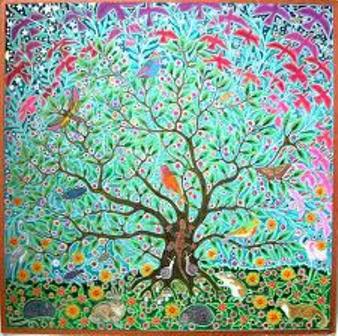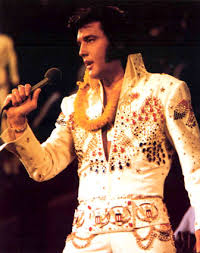|
home | what's new | other sites | contact | about |
||||||
|
Word Gems exploring self-realization, sacred personhood, and full humanity
Destiny
“Our destiny is aligned with our heart's innermost longing, a longing embedded within our soul before birth. This longing is a unique pattern or configuration reminiscent of the constellations in the night sky. When we express (press out) our unique configuration, it shines through us with an otherworldly luminosity, manifesting abundance in our lives and the lives of others. Our sole task is to yoke our inner destiny, thread it through our lives and weave it into the world. All else is just shadows and dust.” Thea Euryphaessa
Editor's 1-Minute Essay: Destiny Editor's Essay: Ultimate Reality How to build a life in Summerland Report: The Psychology Of Life Purpose: Do We Need One? Sabahat Fida: Metamorphosis: The World As Chrysalis Of Soul
Frederic W. H. Myers, in the afterlife, transmitted to Juliet S. Goodenow, Vanishing Night: “You [shall] find whatever you search after. In all the category of experience, you gain what you are searching after — in literature, in art, knowledge, science, invention, love-attainment, in culture, wisdom, riches or treasure… All is accorded you. The spiritual embodiment of your life work is your treasure in Heaven, those laid up by yourself [that is, what you have made of yourself, reflecting your particular talents], your treasures, your mansion, your reward for all you have done on the Earth Plane is laid up by yourself, for yourself, when at last you attain your reward for deeds done in the body. No arbitrary avenging angel awaits you. Creation afforded you in the beginning the implements of industrious labor to satisfy the craving of hunger of the body, and for the satisfaction of the soul. Within your complex organism the Creator placed a guide [that is, your particular desire and sentiment, which reveal destiny] — your passport through the world and through eternity.” William Shakespeare: “It is not in the stars to hold our destiny but in ourselves.”
Gautama Buddha: “No one saves us but ourselves. No one can and no one may. We ourselves must walk the path.” Anais Nin: “What we call our destiny is truly our character and that character can be altered. The knowledge that we are responsible for our actions and attitudes does not need to be discouraging, because it also means that we are free to change this destiny. One is not in bondage to the past, which has shaped our feelings, to race, inheritance, background. All this can be altered if we have the courage to examine how it formed us. We can alter the chemistry, provided we have the courage to dissect the elements.” Nicholas Sparks, Message in a Bottle: “There are winds of destiny that blow when we least expect them. Sometimes they gust with the fury of a hurricane, sometimes they barely fan one’s cheek. But the winds cannot be denied, bringing as they often do a future that is impossible to ignore.” Thomas Merton: “Love is our true destiny. We do not find the meaning of life by ourselves alone - we find it with another.”
Daisaku Ikeda: “Even if things don't unfold the way you expected, don't be disheartened or give up. One who continues to advance will win in the end.” Thomas Merton: “If you want to identify me, ask me not where I live, or what I like to eat, or how I comb my hair, but ask me what I am living for, in detail, ask me what I think is keeping me from living fully for the thing I want to live for.” John O'Donohue: “Your soul knows the geography of your destiny. Your soul alone has the map of your future, therefore you can trust this indirect, oblique side of yourself. If you do, it will take you where you need to go, but more important it will teach you a kindness of rhythm in your journey.” Savage Garden: “I knew I loved you before I met you J.K. Rowling: “Destiny is a name often given in retrospect to choices that had dramatic consequences.” Douglas Coupland: “We are all of us born with a letter inside us, and that only if we are true to ourselves, may we be allowed to read it before we die.” Bob Dylan: “DESTINY is a feeling you have that you know something about yourself nobody else does. The picture you have in your own mind of what you're about WILL COME TRUE. It's a kind of a thing you kind of have to keep to your own self, because it's a fragile feeling, and you put it out there, then someone will kill it. It's best to keep that all inside.” Simon Van Booy: “Coincidences mean you're on the right path.” William Shakespeare, Twelfth Night: “Journeys end in lovers meeting.” W. Somerset Maugham, Of Human Bondage: “It's no use crying over spilt milk, because all of the forces of the universe were bent on spilling it.” Jennifer Elisabeth: “I met a boy whose eyes showed me that the past, present and future were all the same thing.” Michel Faber: “A single day spent doing things which fail to nourish the soul is a day stolen, mutilated, and discarded in the gutter of destiny.”
Charlotte Brontë, Jane Eyre: “Your will shall decide your destiny.” Ursula K. Le Guin: “A man does not make his destiny: he accepts it or denies it.” Steven Erikson: “Destiny is a lie. Destiny is justification for atrocity. It is the means by which murderers armour themselves against reprimand. It is a word intended to stand in place of ethics, denying all moral context.”
Samuel Smiles: “Sow a thought, and you reap an act; Thomas Merton: “First of all, although men have a common destiny, each individual also has to work out his own personal salvation for himself in fear and trembling. We can help one another to find the meaning of life no doubt. But in the last analysis, the individual person is responsible for living his own life and for 'finding himself.' If he persists in shifting his responsibility to somebody else, he fails to find out the meaning of his own existence. You cannot tell me who I am and I cannot tell you who you are. If you do not know your own identity, who is going to identify you?” Jeanette Winterson: “Destiny is a worrying concept. I don't want to be fated, I want to choose.” Heraclitus: “Character is destiny” Lao Tzu: “Watch your thoughts, they become your words; watch your words, they become your actions; watch your actions, they become your habits; watch your habits, they become your character; watch your character, it becomes your destiny.” Alexander Pushkin: “My whole life has been pledged to this meeting with you...” Kahlil Gibran: “That deepest thing, that recognition, that knowledge, that sense of kinship began the first time I saw you, and it is the same now - only a thousand times deeper and tenderer. I shall love you to eternity. I loved you long before we met in this flesh. I knew that when I first saw you. It was destiny. We are together like this and nothing can shake us apart.” Dan Brown: “God's will is your deepest desires.” Clarice Lispector: “The mystery of human destiny is not that we are fated, but that we have the freedom to fulfill or not fulfill our fate: realization of our fated destiny depends on us.” Barbara Taylor Bradford: “She put her hand in his, and he clasped it firmly, knowing he had been waiting for her all his life.” Rafael Sabatini: “Destiny is an intelligent force, moving with purpose.” Tiffanie DeBartolo: “Fate is just another word for people's choices coming to a head. Destiny, coincidence, whatever you name it, inevitably lies in our hands.” Lorii Myers: “When you are destined for greatness, it shows in everything you do. It becomes you. Greatness becomes you.” Isaiah Washington: “I firmly believe that we are all given signs and dreams and put in situations that define who we were and who we are to become. All of it points towards our destiny. All we need to do is listen carefully to the messages and follow our dreams. It is in our dreams that we find our true identities and where our destiny awaits.”
David Gemmell: “Our souls are but leaves in a storm, and only the gods know where we will come to rest.” Jacques Monod: “The ancient covenant is in pieces; man knows at last that he is alone in the universe's unfeeling immensity, out of which he emerged only by chance. His destiny is nowhere spelled out, nor is his duty.” Bertrand Russell: “That Man is the product of causes which had no prevision of the end they were achieving; that his origin, his growth, his hopes and fears, his loves and his beliefs, are but the outcome of accidental collocations of atoms; that no fire, no heroism, no intensity of thought and feeling, can preserve an individual life beyond the grave; that all the labours of the ages, all the devotion, all the inspiration, all the noonday brightness of human genius, are destined to extinction in the vast death of the solar system, and that the whole temple of Man’s achievement must inevitably be buried beneath the débris of a universe in ruins—all these things, if not quite beyond dispute, are yet so nearly certain, that no philosophy which rejects them can hope to stand. Only within the scaffolding of these truths, only on the firm foundation of unyielding despair, can the soul’s habitation henceforth be safely built.” Israelmore Ayivor: “Decision decides destiny. What God wants you to become is the positive person you decide to become when led by God's spirit.” C.M. Stunich: “Sometimes you don't get to choose your partner. Life chooses it for you.” Steve Maraboli: “Letting go means to come to the realization that some people are a part of your history, but not a part of your destiny.” Abraham Verghese: “Geography is destiny.” Ignazio Silone: “Destiny is the invention of the cowardly, and the resigned.”
some things were meant to be... Elvis Can't Help Falling In Love (1961) take my hand, take my whole life too,
|
||||||
|
|


